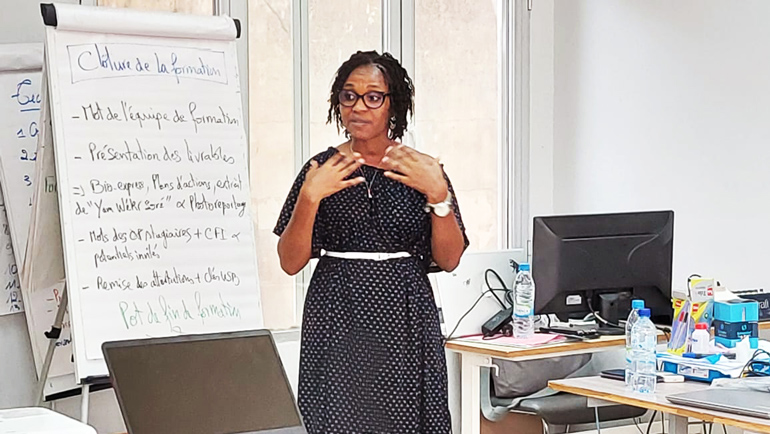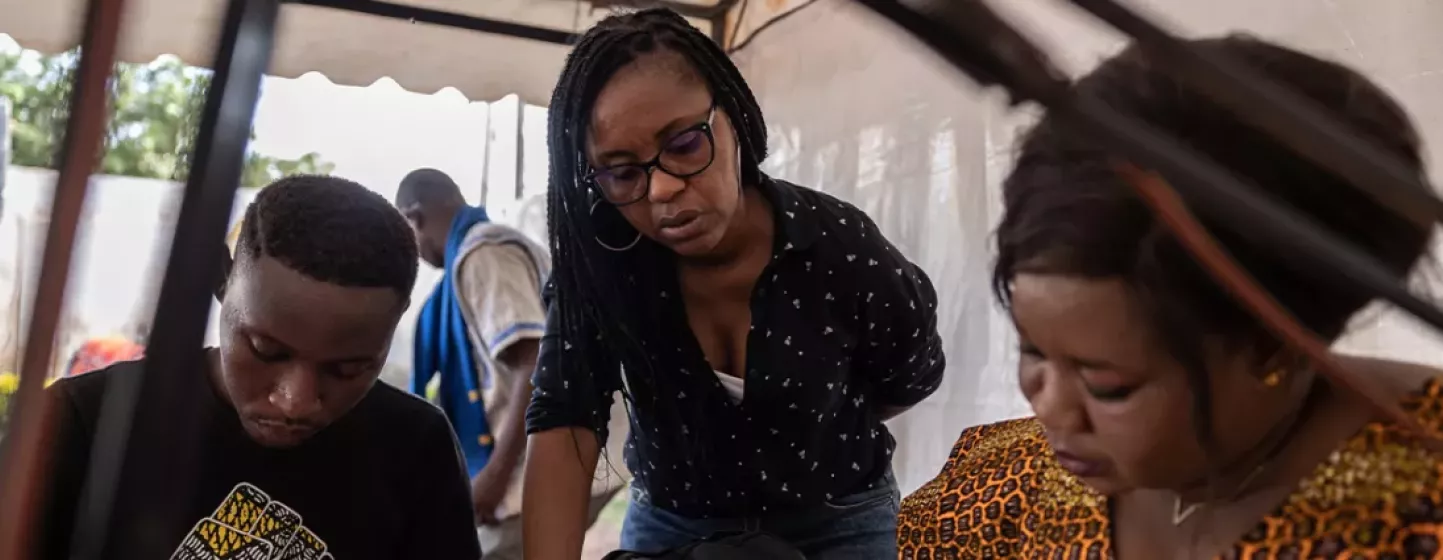Aissata Sankara: "I like to share everything I've learnt with others"
Interview with Aissata Sankara, an independent journalist and reporter in Burkina Faso who has also been a MediaSahel and MediaSahel for Women trainer since 2020.
Why did you take an interest in training?
I studied African literature in the English language, but I had a passion for journalism and did everything I could to equip myself with the means to access it. I undertook short and medium-term professional training, which taught me a great deal. I then decided to share what I had learnt with colleagues who have not had the opportunity to attend a journalism school.
How was your first experience as a trainer?
It was really stressful! It was in 2017. I was tasked with training twelve journalists to host television debates. I wasn't sure whether I was going to succeed or how I was going to go about it. I went to prepare my room the day before. I tried to familiarise myself with the various profiles of the participants to better prepare and adapt the content. I remember it as something of a baptism of fire. Starting by looking at the profiles of the trainees, I was able to sense their interest and benevolence. This helped me to overcome my stress.

What do you like about your job?
There are people who have been working as journalists for many years, but who have never had the opportunity to participate in a training session. I like to share everything I've learnt with others. It gives me great pleasure to see the enthusiasm on their faces! Their involvement shows that they want to improve.
What is the most difficult aspect of your job?
The most difficult thing is when the beneficiaries show absolutely no interest in what you are teaching them. They come because they have been made to. It is sometimes also the case that, during on-site coaching, we have the impression of disturbing the tranquillity of the media outlet. In some cases, nothing changes in the media outlet in spite of the training we have provided. It's difficult. You begin to wonder if there is any point in what you are doing.
What subjects does your training address?
I address the fundamentals of journalism since that's the basis of the profession. We have to go back over them every session as the teams change regularly at community radio stations. We are almost always seeing new people. I also talk about interactivity, hosting television debates, conducting interviews and public consultation programmes. Gender and conflict-sensitive journalism is also a topic that I address frequently.
What is the most memorable thing that has happened to you as a trainer?
It was my first MediaSahel training session on the fundamentals of journalism in 2020. One of the beneficiaries was a presenter with twenty years of experience. He had been in the job longer than me! However, he had never received any training. At the end of the workshop, participants were asked to produce an introduction applying all of the techniques they had learnt. Pierre – that was his name – tried an initial introduction, but faltered. He did not despair. He did not want to leave without succeeding. He started again and captivated the entire room with his content. His peers gave him a standing ovation. With tears in his eyes and a lump in his throat, he confided that he actually felt like a journalist for the very first time. It's something I will never forget.
